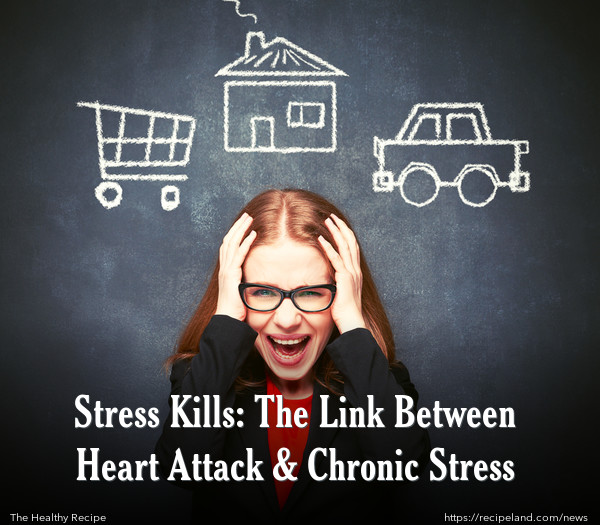It has long been popular belief that stress can trigger a heart attack. Chronic high levels of stress can lead to a number of cardiovascular problems, including high blood pressure, heart attack and stroke.
If someone is under a large amount of stress, their blood pressure generally rises. High blood pressure can easily become an ongoing medical condition if the causes are not alleviated – by lifestyle or medications.
However, many medical researchers have been wary of attributing an increased risk of heart attack to chronic stress alone, citing lack of clinical evidence.
This new study may be enough to change their minds.
Over seven thousand middle aged British men and women were followed over the course of 18 years in this study. Those who reported that they felt the pressure or stress that they had experienced had an “extremely” negative impact on their health medically showed twice the risk for a heart attack compared to those who reported no impact.
Factors including gender, stress levels from occupations and management status, tobacco and alcohol use as well as feelings of social support were all accounted for by researchers without changing the study results.
Dr. Robert Grenfell, clinical services director of the Heart Foundation stated: “This is a very significant finding from a very significant study.”(1)
Prior to this research, doctors were fully aware of the direct link between acute, immediate and severe mental or emotional stress being responsible for causing heart attacks.
Acute stress is the sudden onset of a stressful situation or event, while chronic stress is a long term, constant level of stress. A higher incidence of sudden heart attacks can be seen in groups of people who survive a traumatic event such as a natural disaster or terrorist attack. Other examples of a heart attack being caused by acute stress are seen in people who have been assaulted or even in those grieving the loss of a loved one.
“Tako-Tsubo,” also known as “broken heart syndrome” can cause stress cardiomyopathy (sudden weakening of the heart muscle) after acute severe emotional stress.(1) Tako-Tsubo can be fatal if not treated aggressively to restore the heart to proper function.
For those who may question the mind-body connection, it’s important to understand that neurochemicals released from the brain help regulate our nervous systems – and can have a huge impact on our cardiovascular system.
Chemicals such as catecholamines, adrenaline and norepinephrine are rapidly released into the bloodstream when we sense fear or danger, or are otherwise “stressed out.” It is our bodies’ natural evolutionary defense mechanism of the “fight or flight” response to pump us full of these chemicals in order to protect ourselves or flee from danger.
In a study of “Tako-Tsubo” researchers found that: “Activation of alpha-adrenoceptors and beta-adrenoceptors is the primary trigger of emotional stress-induced molecular changes in the heart.”(2)
That’s right, according to this earlier study, acute stress can actually cause molecular changes in the heart – resulting in a heart attack.
It begs to argue then that long term, chronic levels of high stress are likely causing a regular increase in these neurochemicals in our bodies – increasing the risk for heart disease and myocardial infarction.
In 2003, the Heart Foundation also recognized that depression, low levels of social support and social isolation may be just as responsible for heart disease as the more well-known risk factors like high blood pressure and smoking.
Chronic stress can increase blood pressure and heart rate, increase the risk of blood clots and stimulate nerves that can cause heart rhythms to become dangerously irregular. These symptoms can lead to damaged blood vessels and increased risk for stroke and heart attack.
Long term stress can also lead to unhealthy behaviours such as heavy drinking, smoking and not being physically active – all well-documented increased risk factors for heart disease.
While studies on the effect of chronic stress on the cardiovascular system will surely continue, this study points to the necessity of minimizing the amount of stress in our daily lives whenever possible.
Stress management and reduction techniques ranging from exercise and meditation (to anti-anxiety medications in more severe cases) may help reduce the risk for heart disease and related, life-threatening medical complications.
SOURCES: (1)https://www.heartfoundation.org.au/information-for-professionals/data-and-statistics/Pages/default.aspx;
(2)Ueyama, T., Senba, E., Kasamatsu, K., Hano, T., Yamamoto, K., Nishio, I., & ... Yoshida, K. (2003). Molecular mechanism of emotional stress-induced and catecholamine-induced heart attack. Journal Of Cardiovascular Pharmacology, 41 Suppl 1S115-S118.
Image courtesy of Andy Newson / FreeDigitalPhotos.net










Comments